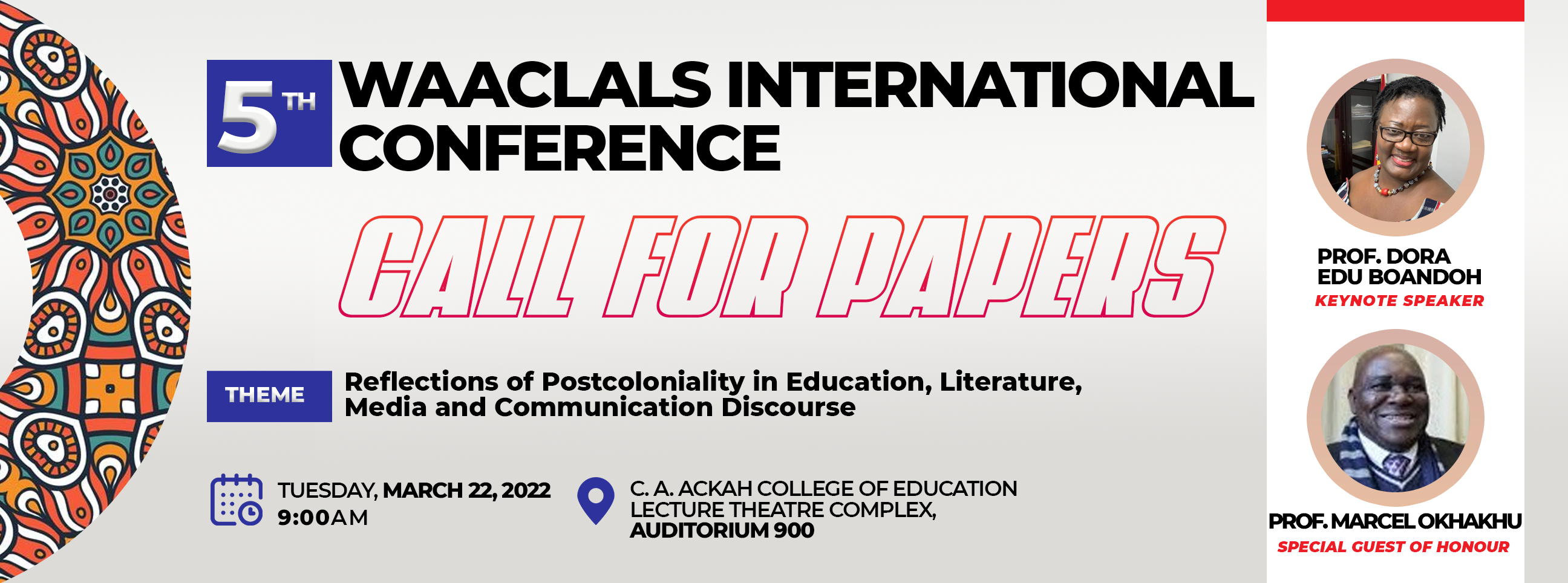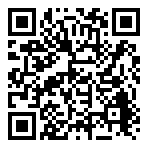
Participate in the 5th WAACLALS International Conference – University of Cape Coast
West African Association for Commonwealth Literature and Language Studies (WAACLALS) is the regional branch of the Association for Commonwealth Literature and Language Studies (ACLALS). WAACLALS encourages research and scholarship across disciplines in commonwealth, transatlantic and postcolonial studies. It seeks to stimulate and advance the interaction of researchers, scholars, writers, artists and critics who are engaged in the aforementioned areas of interest within the region.
The Fifth International Conference of WAACLALS seeks explicate the postcolonial Africa’s advancement or retardation after over six decades of postcolonial dis/engagements under the theme: Reflections of Post Coloniality in Education, Literature, Media and Communication Discourse.
After the surge in independence of African nations, an overt influence in perspective can be seen internalized. One area of influence has been Education which carries the nuance of Literature, Communication and Media horoscope. Education has sought to influence the thinking processes of Postcolonial societies. Education has been conceived as the bedrock of development. In considering education, the inherent variables of Language, Communication and Media must be critically assessed as the prism for a holistic reflection in the context of postcolonial demands. One of the motivations that has long been projected in the postcolonial imperative nexus is/was the conception of the wide acknowledgement of the role of education in the development of individuals, societies and nation-states. Yet, in spite of its power to transform societies, the potential of education as an academic engagement to enable Africa’s development – a seeming reality – ought to be analyzed after about sixty decades of postcolonial Africa. WAACLALS 2022 spotlights contemporary Africa’s education, literature, media, and communication concerns and social development quandary.
This conference engages the synergy of multidisciplinary and interdisciplinary perspectives among academics, researchers, media practitioners and development experts to interrogate postcolonial Africa’s narratives within the prism of the theme. It further queries the extent to which Africa’s independence has been worth the struggle and its continuous celebrations.
Globally, promotion of innovative educational practices is deemed as a strategy to achieving sustainable development. In the milieu of Postcolonial Education discourse, the impact of these innovations on the provision of quality education to promote sustainable development, particularly in low income countries, needs to be explored further. WAACLALS 2022 explores more dynamic paradigms and innovative ways of re-engaging Language/Literature, Media and Communication Discourse as concurrent models for addressing Postcolonial Africa’s challenges, by using them as vehicles for interrogating socio-political policies, rhetoric and academic facade. In this regard, WAACLALS hereby calls for papers which seek to address the above concerns under the following sub themes, among others:
Sub-Themes:
- Teacher Education, Literacy and Language Development.
- L1 or L2 – Explicating the Interchange of Language of Children in Lower Primary.
- Achieving Sustainable Development as a Global Expectation in sub-Saharan Africa.
- The Media as a/an In/Significant Tool for Polarity Assessment of Education.
- The Literature of Education: The Portrait Impact of Media and Communication Discourse on Education in Ghana/Nigeria/Cameroon.
- Decolonizing Education: The Role of Literature, Media and Communication.
- Postcoloniality in Academic Intervention from Education, Media, Literature and Communication Discourse.
- Access, Equity, Gender and Inclusion: Analysing the Impact of the Language of Education Service Providers.
- The Engagement of Drama/Theatre Arts as an Essential Tool for Language Development.
- Dewesternizing Media Studies.
- Educational Leadership and Management: The Interface of Power Discretions.
- Epistemologies of African postcolonial literature
Call for Papers
Abstracts of papers describing original work are invited in any of the Sub-themes listed above.
Note to Prospective Contributors
Deadline for Submission of Abstracts: Friday November 19, 2021
Notification of Acceptance: Friday December 3, 2022
Deadline for Submission of Full Papers (if abstract is selected): Friday January 14, 2022
Guidelines for Abstract Submission
Contributors are kindly reminded that assessors of the abstracts will check if each abstract satisfies all the following.
- That the title of the paper suggests what the paper is about
- That name(s) and contact address(es) of the author(s) are indicated
- That the key words are between 3 and 5 words and written beneath each abstract.
- That the abstract is relevant to one of the sub-themes above, indicating the purpose of the paper and informing readers of what the paper is about
- That the word count of the abstract does not exceed 350 words, formatted in Microsoft Word, single-line spaced, and written in Times New Roman size 12 (12 points)
- That the abstract is written in clear and accurate language
Please note that for abstracts of empirical/research papers, the following are to be indicated clearly and concisely:
a. Purpose of the paper
b. Research objectives and/or research questions/hypothesis
c. Summary of the methodology
d. Key findings and
e. Recommendations
Full paper submissions are required if authors consider publishing their paper. Articles submitted to the 5th WAACLALS International Conference should report original, previously unpublished papers, and must not be under consideration for publication elsewhere. Any act of plagiarism is highly unacceptable. In the case of any academic misconduct or violation of rules, the writer(s) submitting the paper to the Conference will be the only responsible party.
Guidelines for Submission of Full Papers
- Manuscripts should conform to the style set forth in the publication manual of the American Psychological Association (APA) 6th edition by having the following characteristics among other things:
a. A title page with title of 10-12 words. Below the title should be written the author’s name in the following order: first name, middle and last name. Below the author’s name is the institutional affiliation of the author, mailing address(es), email address(es) and phone numbers.
b. An abstract on page 2, written as a single paragraph and having a maximum of 250 words.
c. A text which starts on page 3. Page 3 should begin with the title of the paper centered at the top. The text begins below the title without the label “Introduction”. The sections of the text follow each other without a break. If the paper is a research report it should include an introduction (which comprises the background, purpose and research question(s) or hypotheses), methods, results, discussion, conclusion and recommendation(s) Implication(s).
d. References. This list starts on a new page. References should be written in alphabetical order and should include only the cited works within the body of the paper. The APA Sixth Edition format should be followed in writing all references.
e. Tables and figures should be presented using the APA format and be numbered consecutively in the order in which they are first mentioned in the text.
f. Manuscript should be typewritten using the Times New Roman with font size of 12, double-spaced throughout on A4 sheet of paper.
g. All paragraphs should be indented five to seven spaces. Type all remaining lines of the manuscript to a uniform left hand margin.
h. Authors are responsible for obtaining permission from copyright owners to reprint or adapt tables or figures or to print a quotation of 500 words or more.
- Other publication styles may be accepted if the manuscript is consistent and strictly conforms to a specific writing style.
- Manuscripts most acceptable to space requirement would be between 15-20 typewritten pages or 3500-6,000 words including the references.
- Submit your manuscript file in MS word electronically to waaclals.conference2022@ucc.edu.gh. Authors are advised to keep a copy of their manuscript to guard against loss.
- Manuscripts submitted after the deadline for submission has elapsed will not be processed.
- Contributors/authors may be made to pay a minimal publication fee.
- Successful contributors will be given complimentary copies of the journal in which their manuscripts would be published.
- Details of payment schedules (payment of conference fees, publication fees, accommodation and excursion fees) will be provided as soon as the quotes are ready.


